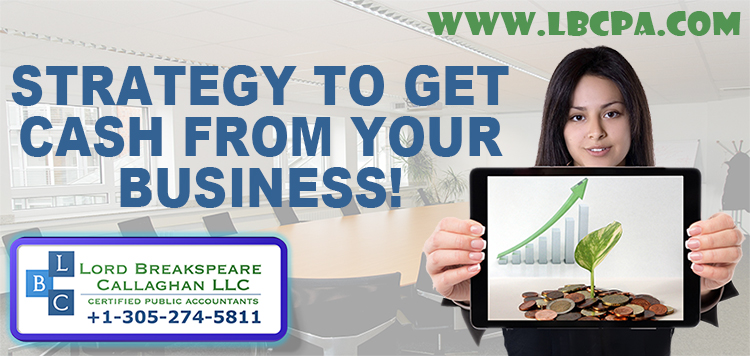LBCPA News 
Click here to go back
4 ways to withdraw cash from a corporation

Owners of closely held corporations often want or need to withdraw cash from the business. The simplest way, of course, is to distribute the money as a dividend. However, a dividend distribution isn’t tax-efficient because it’s taxable to the owner to the extent of the corporation’s earnings and profits. It also isn’t deductible by the corporation. Here are four alternative strategies to consider:
1. Capital repayments. To the extent that you’ve capitalized the corporation with debt, including amounts that you’ve advanced to the business, the corporation can repay the debt without the repayment being treated as a dividend. Additionally, interest paid on the debt can be deducted by the corporation.
This assumes that the debt has been properly documented with terms that characterize debt and that the corporation doesn’t have an excessively high debt-to-equity ratio. If there isn’t proper documentation or the debt-to-equity ratio is too high, the “debt” repayment may be taxed as a dividend. If you make future cash contributions to the corporation, consider structuring them as debt to facilitate later withdrawals on a tax-advantaged basis.
2. Compensation. Reasonable compensation that you, or family members, receive for services rendered to the corporation is deductible by the business. However, it’s also taxable to the recipient(s). This same rule applies to any compensation (in the form of rent) that you receive from the corporation for the use of property.
In both cases, the compensation amount must be reasonable in terms of the services rendered or the value of the property provided. If it’s considered excessive, the excess will be a nondeductible corporate distribution (and taxable to the recipient as a dividend).
3. Property sales. You can withdraw cash from the corporation by selling property to it. However, certain sales should be avoided. For example, you shouldn’t sell property to a more than 50%-owned corporation at a loss, since the loss will be disallowed. And you shouldn’t sell depreciable property to a more than 50%-owned corporation at a gain, since the gain will be treated as ordinary income, rather than capital gain.
A sale should be on terms that are comparable to those in which an unrelated third party would purchase the property. You may need to obtain an independent appraisal to establish the property’s value.
4. Loans. You can withdraw cash tax-free from the corporation by borrowing money from it. However, to prevent having the loan characterized as a corporate distribution, it should be properly documented in a loan agreement or note. It should also be made on terms that are comparable to those in which an unrelated third party would lend money to you, including a provision for interest (at least equal to the applicable federal rate) and principal. Also, consider what the corporation’s receipt of interest income will mean.
These are just a few ideas. If you’re interested in discussing these or other possible ways to withdraw cash from a closely held corporation, contact us. We can help you identify the optimal approach at the lowest tax cost.
If you have any questions regarding accounting, domestic taxation, essential business accounting, international taxation, IRS representation, U.S. tax implications of Real Estate transactions or financial statements, please give us a call at 305-274-5811.
Source: Thomson Reuters






